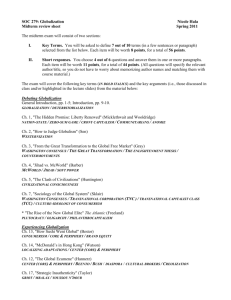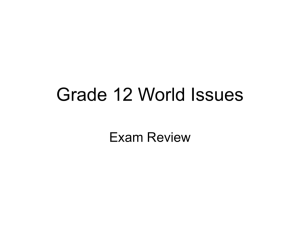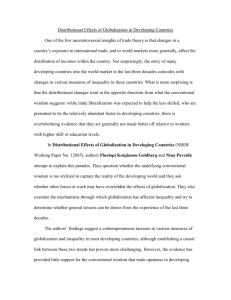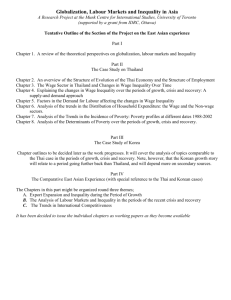ISS-4144 Critical Social Policy for Transformative Development
advertisement
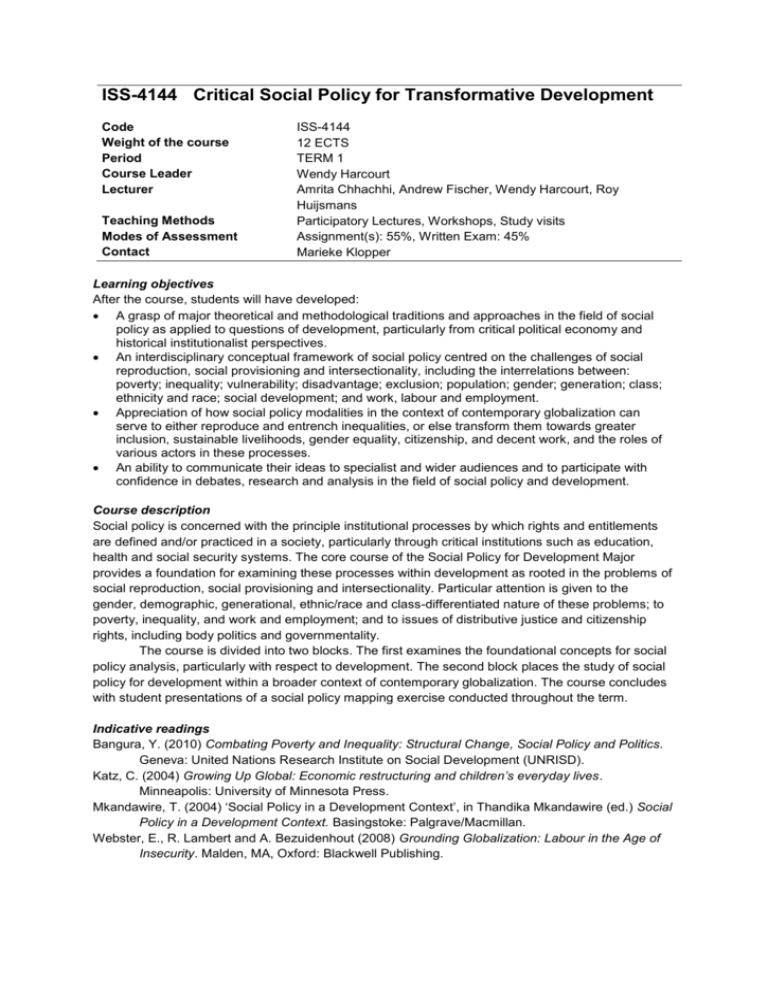
ISS-4144 Critical Social Policy for Transformative Development Code Weight of the course Period Course Leader Lecturer Teaching Methods Modes of Assessment Contact ISS-4144 12 ECTS TERM 1 Wendy Harcourt Amrita Chhachhi, Andrew Fischer, Wendy Harcourt, Roy Huijsmans Participatory Lectures, Workshops, Study visits Assignment(s): 55%, Written Exam: 45% Marieke Klopper Learning objectives After the course, students will have developed: A grasp of major theoretical and methodological traditions and approaches in the field of social policy as applied to questions of development, particularly from critical political economy and historical institutionalist perspectives. An interdisciplinary conceptual framework of social policy centred on the challenges of social reproduction, social provisioning and intersectionality, including the interrelations between: poverty; inequality; vulnerability; disadvantage; exclusion; population; gender; generation; class; ethnicity and race; social development; and work, labour and employment. Appreciation of how social policy modalities in the context of contemporary globalization can serve to either reproduce and entrench inequalities, or else transform them towards greater inclusion, sustainable livelihoods, gender equality, citizenship, and decent work, and the roles of various actors in these processes. An ability to communicate their ideas to specialist and wider audiences and to participate with confidence in debates, research and analysis in the field of social policy and development. Course description Social policy is concerned with the principle institutional processes by which rights and entitlements are defined and/or practiced in a society, particularly through critical institutions such as education, health and social security systems. The core course of the Social Policy for Development Major provides a foundation for examining these processes within development as rooted in the problems of social reproduction, social provisioning and intersectionality. Particular attention is given to the gender, demographic, generational, ethnic/race and class-differentiated nature of these problems; to poverty, inequality, and work and employment; and to issues of distributive justice and citizenship rights, including body politics and governmentality. The course is divided into two blocks. The first examines the foundational concepts for social policy analysis, particularly with respect to development. The second block places the study of social policy for development within a broader context of contemporary globalization. The course concludes with student presentations of a social policy mapping exercise conducted throughout the term. Indicative readings Bangura, Y. (2010) Combating Poverty and Inequality: Structural Change, Social Policy and Politics. Geneva: United Nations Research Institute on Social Development (UNRISD). Katz, C. (2004) Growing Up Global: Economic restructuring and children’s everyday lives. Minneapolis: University of Minnesota Press. Mkandawire, T. (2004) ‘Social Policy in a Development Context’, in Thandika Mkandawire (ed.) Social Policy in a Development Context. Basingstoke: Palgrave/Macmillan. Webster, E., R. Lambert and A. Bezuidenhout (2008) Grounding Globalization: Labour in the Age of Insecurity. Malden, MA, Oxford: Blackwell Publishing.
